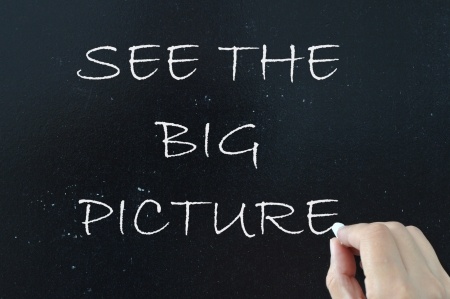
Selling Smarts: Why No Is the Second-Best Thing You Can Hear!
As a salesperson, of course you want to hear yes, and you’re a little afraid of no. No of course is failure. Who wants to fail? Certainly not me.
The fear of failure though, causes you as a salesperson to play small. You don’t ask the questions you need to ask because you’re afraid of no.
But No Is Actually a Fantastic Answer
No is a fantastic answer. When you hear it, it frees you up to focus on a prospect and do the work that can lead to a yes later on.
And what about hearing maybe? Too many of us love maybe because it isn’t an outright rejection . . . it isn’t no. And prospective clients can feel better when they say maybe. Why? Because they can tell themselves, “At least I didn’t say no.”
Chances are your prospects like you. You have good people skills and something worthwhile to offer. Plus, you have spent time with them. So they say maybe so as not to hurt your feelings.
Everybody might feel better because they got to maybe instead of to no. But if you get to maybe, all you really got was a colossal waste of time. An amazing amount of time and productivity are wasted, simply because people try to get to maybe.
Some Bigger, More Effective Ways of Selling
Here’s the point. Ask the tough questions and bring up the tough issues early, and don’t be afraid. Getting to an early no (and of course, an early yes) is preferable in every way to investing too much time to only arrive at maybe.
Some of the tough questions include:
- “Do you know how much work this is going to be?” Give a prospect a realistic understanding of the expectations of them and what the work is going to be like for them, every day, if they buy what you are selling. While discussing about those issues might not be fun, it’s better to do it sooner rather than later. And it offers a more time-efficient way to sell.
- “Have we discussed how much this is going to cost?” Many salespeople don’t like to talk about money at the beginning of a sales effort. They assume that is better to sell prospects on the concept first and then talk about the cost. But how much sense does that make? If you talk about money at the beginning and they don’t have enough, you can get to no really quickly. It doesn’t matter how much they love your concept if they can’t afford to buy it.
- “Have you got the people, technology and other resources to successfully implement what we are talking about?” Many salespeople avoid asking questions like that, because they are afraid of killing a sale before it has gotten due consideration. But stop and think. Any prospect at some point is going to think about those issues. You don’t want to hear at the last minute, “We’re sold on what you’re offering, but we lack the ability to do it.” You want to hear about those problems early so you can solve them, address them, or even get to that early no.
And Remember . . .
No is also not always no. It is often an opportunity to start a new conversation and overcome objections you might not hear otherwise.
Many times, no is the start of a valuable conversation. If you hear no, start digging into the issues at hand. Be careful though. If the no is really a no, let it stand.
So stop to review your sales process. Are there questions in it that you put off because you’re afraid of turning off the prospect?
My advice? Move those tough questions up front. If they’re going to disqualify a customer, it’s best to do it early. You don’t need to wait until the fourth or fifth conversation to get into the more difficult conversations. You can have those conversations in your first conversation.
Like anything, this is a skill you need to learn and practice.
mailto:ehackel@ingage.net
Currently, a consultant to some of the largest franchise systems in North America. A franchise industry leader, widely published, keynote speaker, member of the New England Franchise Association Board, and Co-chair of the International Franchise Associations Knowledge Share Task Force.|A dynamic, innovative, thoughtful and inspiring leader with 30 years of experience in franchising, distributed networks and cooperatives. Successful history of: (i) turning around a $700 million distressed franchise system into a $2.0 billion revenue business in four years, (ii) reviving and re-energizing a $3.5 billion revenue franchisor and (iii) founding three franchise systems. Experienced corporate board member.
- New Leadership Ideas Shaping the Business Landscape - February 28, 2024
- Is Remote Training Putting Your Company Data at Risk? - February 15, 2024
- Training Smarts: What Kind of Bilingual Training Do You Need? - January 29, 2024







